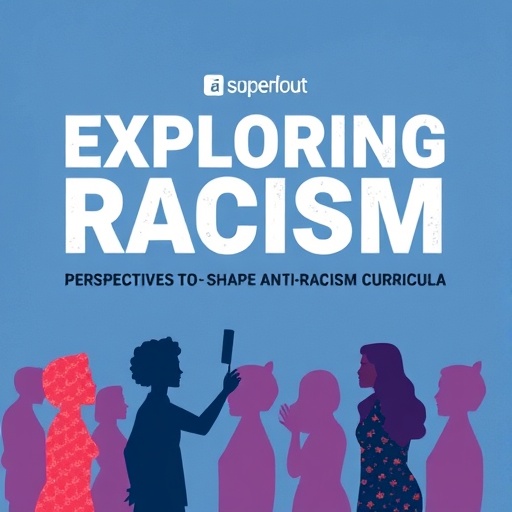In recent years, the conversation surrounding racism within healthcare has gained significant momentum, revealing systemic issues that require urgent attention. A groundbreaking study led by Dr. B.C. Ricci, alongside A.C. Rozzi and N. Gupta, explores the perceptions of racism among residents, faculty, and Latino/a/x patients. This mixed-methods investigation aims to shed light on the experiences of marginalized groups, highlighting the need for comprehensive anti-racism and advocacy curricula in medical education.
The study utilizes a unique approach by combining qualitative interviews and quantitative surveys to gather rich, nuanced data. This combination allows researchers to capture not only the statistical prevalence of observed racism but also the personal narratives and experiences of those affected. It underscores the multifaceted nature of racism, not merely as an isolated event but as a chronic experience that impacts health outcomes and quality of care.
Participants in the study reported a range of experiences, from overt acts of racism to subtle microaggressions. These experiences resonated through various interactions in the clinical setting, affecting not only patient-provider relationships but also the broader institutional culture. For many Latino/a/x patients, the healthcare environment can be hostile, creating barriers to accessing necessary care and exacerbating existing health disparities.
One of the critical findings from the research points to the lack of awareness among some medical professionals regarding the impact of racism on patient care. Faculty members, while often well-educated on the topic, may still inadvertently contribute to a culture that does not adequately address or combat racism within healthcare. This gap in understanding highlights the urgent need for training that emphasizes cultural competency and the recognition of implicit bias.
Furthermore, the study emphasizes the importance of including a diverse range of perspectives in medical education. By integrating insights from residents, faculty, and patients into the curriculum, institutions can foster a more inclusive environment that actively seeks to dismantle systemic racism. The researchers advocate for the incorporation of anti-racism training as a core component of the medical curriculum, challenging prospective physicians to reflect on their biases and the experiences of their patients.
The researchers also discovered that engagement in advocacy can play a pivotal role in addressing racism. Many participants expressed a desire to not only confront racism when they witnessed it but also to work proactively towards systemic change. This highlights the importance of empowering medical students, residents, and faculty to become advocates for their patients and to challenge discriminatory practices within the healthcare system.
As the study draws to a close, the authors offer essential recommendations for integrating these findings into practical applications. First, they suggest the development of workshops and seminars focused on enhancing cultural competence and discussing the impact of racism in healthcare. Additionally, they propose that medical schools employ diverse faculty representatives who can offer various cultural perspectives and experiences, thus enriching the educational landscape for future healthcare providers.
Another significant aspect of the study is the recognition that systemic issues require systemic solutions. The authors argue that addressing racism in healthcare cannot be achieved solely through individual efforts; rather, it necessitates a collective approach among institutions, policymakers, and communities. They call for a coordinated effort to create policies that promote equity and inclusion within healthcare environments.
In conclusion, this mixed-methods study conducted by Ricci, Rozzi, and Gupta highlights the pressing need to recognize and combat racism in healthcare. By valuing the perspectives of residents, faculty, and patients, the research opens avenues for enriching medical curricula and fostering a culture of inclusivity. As discussions around racism in healthcare continue to evolve, the findings of this study lay the groundwork for future initiatives aimed at dismantling systemic barriers and promoting equity for all patients.
The implications of this research extend beyond individual institutions, as they reverberate throughout the healthcare landscape. By prioritizing anti-racism training and advocacy, medical education can cultivate a new generation of healthcare professionals who are not only skilled in their field but also committed to fostering a just and equitable healthcare system. Through ongoing dialogue, research, and reform, the healthcare industry can work towards a future free from the shackles of racism, ensuring that all patients receive the care and respect they deserve.
In an age where social consciousness and equity are at the forefront of public discourse, studies such as this are vital in pushing critical conversations into the mainstream. It is the responsibility of healthcare institutions to rise to the challenge and embrace these findings as a call to action, ultimately transforming the way care is delivered and perceived in our diverse society.
Subject of Research: Resident, Faculty, and Latino/a/x Patient Perspectives on Racism
Article Title: Resident, Faculty, and Latino/a/x Patient Perspectives on Racism: A Mixed-Methods Study to Inform Anti-Racism and Advocacy Curricula
Article References:
Ricci, B.C., Rozzi, A.C., Gupta, N. et al. Resident, Faculty, and Latino/a/x Patient Perspectives on Racism: A Mixed-Methods Study to Inform Anti-Racism and Advocacy Curricula. J GEN INTERN MED (2025). https://doi.org/10.1007/s11606-025-09897-6
Image Credits: AI Generated
DOI:
Keywords: Racism, Healthcare, Medical Education, Anti-Racism, Advocacy, Latino/a/x Patients, Mixed-Methods Research.




